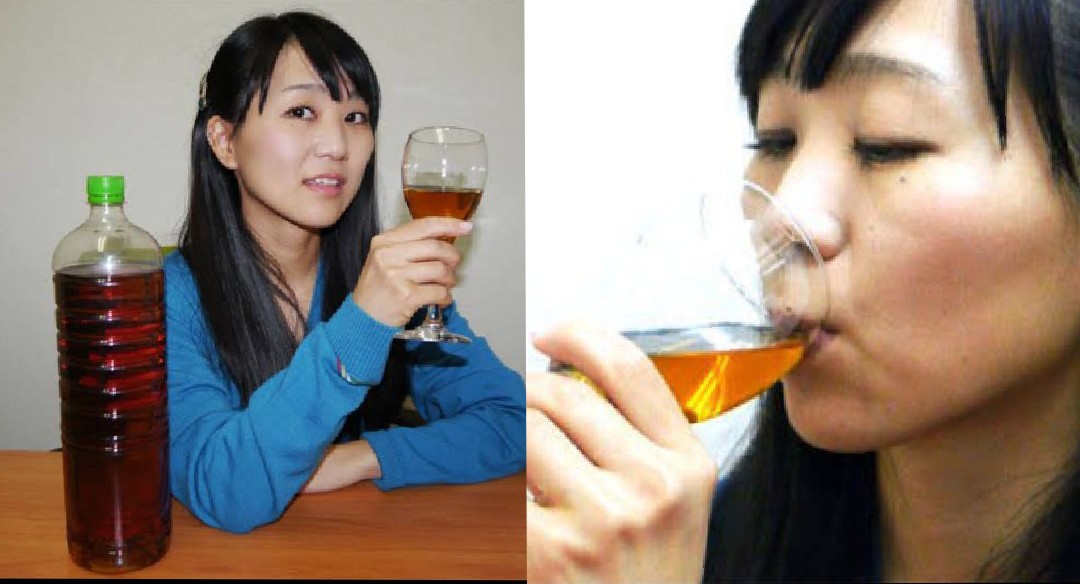
This is a seeming bizarre traditional Korean rice wine named, ‘Ttongsul’ which traditionalists use human POO to produce it and can reportedly ‘heal’ everything from broken bones to epilepsy.
Ttongsul is a traditional medication from the country of ginseng and a kind of wine with 9 percent alcohol. The extreme part is that this wine uses human feces in the fermentation process.
This ancient drug which is rather-disgusting potion has been used since centuries ago and started to be abandoned in 1960. However, the video tape of its making process has only recently been viral.
“The making of this ‘feces wine’ was tracked down by a VICE correspondent. The correspondent found a Korean traditional doctor who claimed to be the last person who knows about the making process,” wrote Daily Mail in 2018 report. Dr Lee Chang Soo, the doctor, said the potion can heal several diseases like fractured bones and epilepsy.
Soo stated only the feces of 6-year-old children can be used, which, according to him, are still clean and do not stink. Yuka Uchida, a VICE correspondent tried to drink the wine. According to her, it tasted just like any other wine but she could not clear off her mind from thinking about the feces and she felt like she smelled a feces odor when sipping the drink.
The medicinal alcoholic drink is a little different from the wine many people enjoy with dinner as its special ingredient is fermented faeces from a human child.
Ttongsul is a traditional Korean medicinal alcoholic drink and a type of rice wine, which includes fermented faeces from a human child.
The unappetising looking drink is not widely enjoyed in South Korea.
Now, an intrepid reporter from VICE has tracked down a traditional Korean medicine doctor who claims to be one of the last people who knows how to make the drink, dubbed ‘faeces wine’.
How the world will look in 2083: A tunnel linking Europe and the U.S., £20 loaves of bread and £476.86 pints of lager (plus we’ll all be millionaires).
From your lips to your hips in just 3 hours: From digesting a cupcake to healing after surgery or even having an orgasm, how long it takes your body to work.

Dr Lee Chang Soo said the use of the special ingredient for medicinal purposes can be traced back centuries in Korea when Ancient Koreans claimed it could cure a host of problems.
Animal faeces were also used in medicine, from bat droppings to treat alcoholism to chicken faeces to treat stomach problems. However, the ingredient is no longer widely used in Eastern medicine.
Dr Lee Chang Soo said the use of the faeces for medicinal purposes can be traced back centuries when Ancient Koreans claimed it could cure a host of problems. Here it is mixed with water to from the first step of the drink-making process.

Dr Soo told VICE Japan correspondent Yuka Uchida:’I feel sad that human faeces is no longer used as traditional medicine.’
The rice wine is nine per cent alcohol and includes faeces from children aged around six years-old, which Dr Soo claims does not smell and is ‘pure’.
He also said the wine can prevent pain and while people might be hospitalised for around 20 days following a nasty fall, the wine could heal the person in half the time.
After a day, boiled rice and yeast is mixed together and are mixed in a pot with the concentrated faeces water, which apparently smells more intense
The rice wine is made by rapidly fermenting water with children’s faeces in it.
After a day, boiled rice and yeast is mixed together. Non-glutinous rice is used for fermenting as it has a lot of protein, while normal rice is used to improve the taste.

The new ingredients are mixed in a pot and the concentrated faeces water added, which apparently smells more intense.
The concoction is kept at between 30 and 37 degrees Celsius for a week and is strained (pictured) before it is ready to drink. Dr Soo warned the journalist the wine ‘might taste a little sour’ but when she struggled to drink it, claimed the problem was all in her head
The concoction is kept at between 30 and 37 degrees Celsius for a week and is strained before it is ready to drink.

Dr Soo warned the journalist the wine ‘might taste a little sour’ but when she struggled to drink it, he said the problem was all in her head.
Ms Uchida said: ‘It tastes like rice wine but when I breathe out of my nose it smells like poo.’
The vast majority of Koreans have not even heard of Ttongsul, which all but died out in the 1960s, but it is rumoured that there are still a handful of traditionalists trying to keep the bizarre drink alive.
